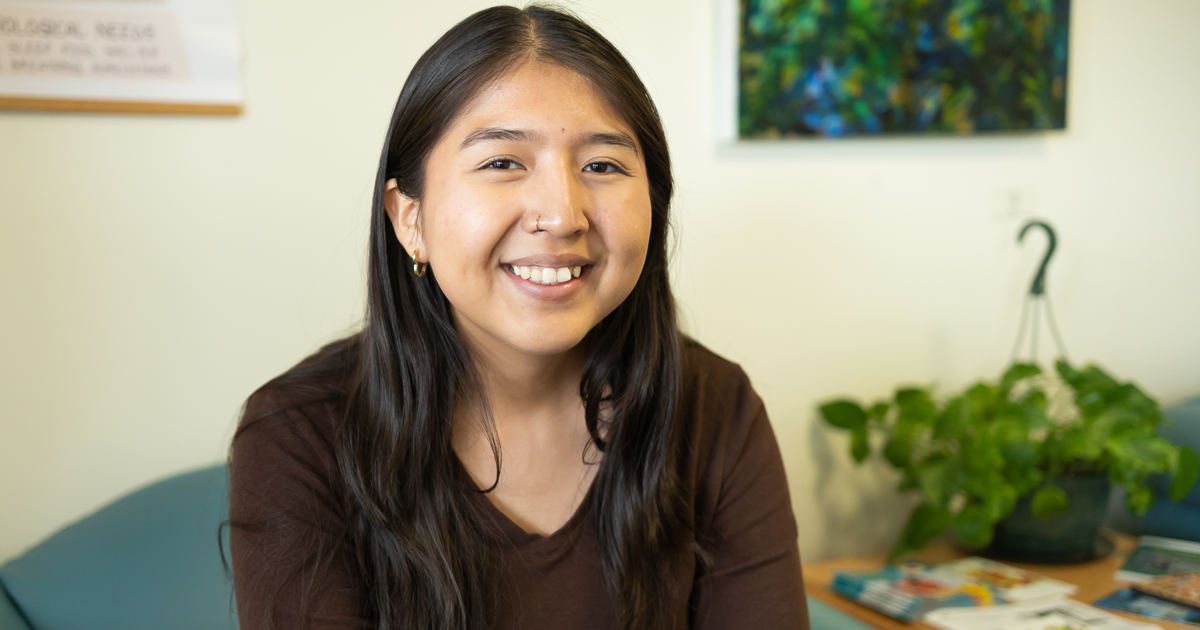Shandiin Clark ’25: Belonging on Campus

When Shandiin Clark ’25 came to Plymouth State University she found herself a long way from both her culture and her home. Having grown up on a Navajo reservation in Nazlini, AZ, Clark’s life on the East Coast has proven to be an unfamiliar yet exciting adventure.
“From customs to language, there’s a very stark difference between life on the reservation and here at school,” says Clark. “I would say I have two different personalities. It’s an honor to represent the native community and to feel like I belong on campus.”
Clark, a first-generation college student, is committed to ensuring that her peers feel they also belong through her role as TRIO mentor. More than half of all Plymouth State students are either first-generation, low income, or have a disability. This “trio” comprises the three key factors in determining eligibility for the federally funded student support service, which is the primary component of the University’s Plymouth Academic Support Services (PASS) program.
“We have TRIO Connection Days where first-year students come to get acquainted with campus and each other,” says Clark. “As a mentor, I provide encouragement, problem solving, and camaraderie to help new students feel welcomed and supported.”
As an IDEA Center ambassador, Clark shares in the Idea Center's goal of creating a welcoming campus for all community members. With her Navajo identity at the core of her being, she wants to ensure that others—especially those belonging to minority groups—feel seen, heard, and represented on campus.
“Every program we put on highlights a different culture,” says Clark. “I get to represent the native community by educating my peers about Navajo culture, which lets them know that we are still around.”
As the biggest Native American tribe in the United States, the Navajo people are certainly still around, and as Clark points out, they need equitable healthcare. She feels uniquely positioned to provide this as the only native student in PSU’s nursing program.
“The reason I want to become a nurse is to provide indigenous representation within the health care community,” says Clark. “Native patients are likely to feel more comfortable around a native physician. I can blend modern medicine with my own knowledge of native practices, ceremonies, beliefs, and traditions, and I know the importance of learning the differences from tribe to tribe.”

